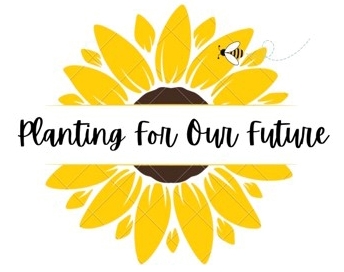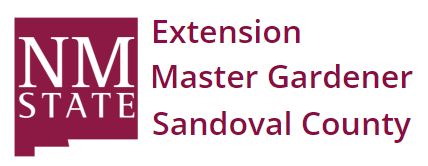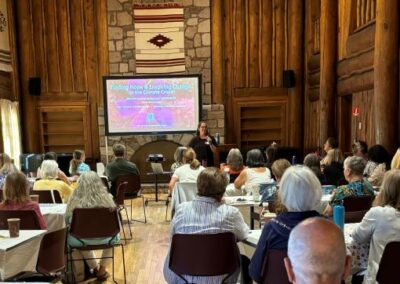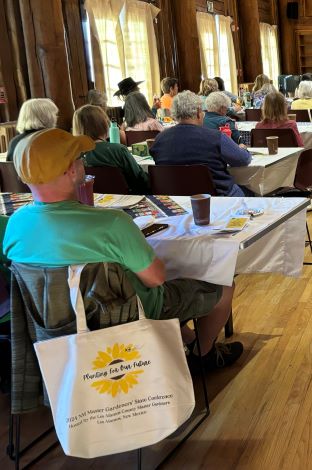Meg Buerkel Hunn, Advisory Council Chair: State Master Gardener Conference 2024

Judith Phillips ended her talk at the NM State Master Gardeners Conference, Planting for Our Future, on September 15, 2024, with this quote:
“Bats can hear shapes. Plants can eat light. Bees can dance maps. We can hold all these ideas at once and feel both heavy and weightless with the absurd beauty of it all.”
The CryptoNaturalist @CryptoNature
She spoke about the challenges of designing landscapes for a livable future.
Many of the offerings dealt with various aspects of our ‘climate crisis’ (because it’s not simply climate ‘change’). How do we face the future? How do we garden with this in mind? How can we tend the spaces entrusted to us so other inhabitants in our ecosystem can thrive and so that our descendants will enjoy them?
Dr. Marisa Thompson, NMSU Urban Horticulture Specialist, was the first speaker, and she spoke about our need to cultivate not just ‘hope,’ but climate courage. She pointed to the things she sees that give her courage – resources developed (like Field Guide to Passive Rainwater Harvesting, put out by Bernalillo County, accessed at https://www.bernco.gov/public-
She also talked about how the more she pays attention (to her garden ecosystem), the more she is amazed, and recommended this practice to all in attendance, offering her own personal story about how she’s moved from squishing her nemesis, hornworms, to a deep and abiding appreciation for them. She also shared with us her dad’s advice ‘Slow down and you’ll see more.’ Dr. Thompson also reminded us that, as Edgar McGregor says, “Climate action is a group project. There will be no hero that will emerge from the fog to save us from ourselves. To preserve this planet, we’ll need a billion climate activists.”
Following her talk, I attended an informational session about the Junior Master Gardener program developed by Texas. What better way to inspire those billions of climate activists than by teaching children the power and awe to be found in gardens and nature?
After a lunch break and a walk around Fuller Lodge to admire the Los Alamos Master Gardeners demonstration gardens, I attended two talks about bees and pollinators. We’ve been concentrating on fruit and vegetable gardens in our space, and I want to ‘branch out’ beyond to shelter more wildlife here, so these were really interesting talks.
The first speaker was Olivia Carril, a PhD entomologist who has been studying native bees for over 20 years. She has a contagious passion for bees. I learned that native bees here in NM range in size from the diameter a quarter to barely as tall as that same quarter! I also learned that NM has 1100 species of native bees, second only to the state of California. There are over 4000 native bees in the United States, and in the world, somewhere between 20,000 and 30,000. Dr. Carril, the author of several books and a blog https://www.
The final speaker I heard was Dana Ecelberger, Bee City project coordinator (Los Alamos) and Master Gardener, who spoke about the importance of including native plants (plants that grew here prior to European contact) because they have co-evolved with pollinators. These native plants help to maintain a resilient ecosystem, have a positive impact on birds and other wildlife, and use less water. She also reminded us that if you plant for pollinators, to be prepared for some plant damage (it means they’re well fed!). Other suggestions she gave to help our native bees included to stop using pesticides, stop using leaf blowers, plant for specialist bees, and leave leaf litter and open spaces of soil. She pointed us to xerces.org for more in depth information.
It was fun to gather with Master Gardeners from around New Mexico, and to take a day to learn more about plants, bees and pollinators, gardens, and how we can each be a climate activist in our own yard.


